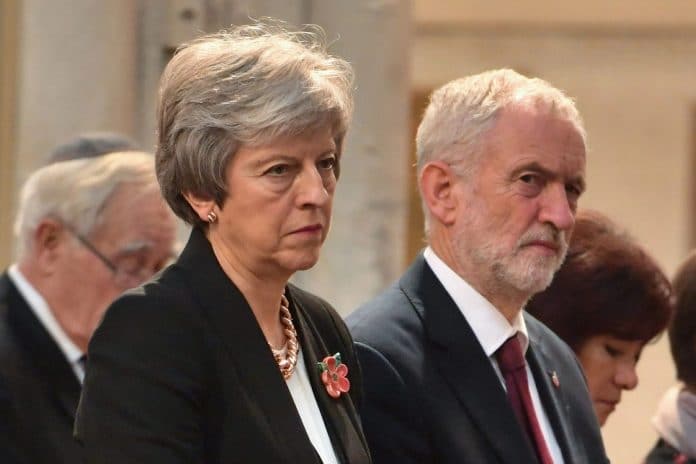U.K. Prime Minister Theresa May and Jeremy Corbyn, leader of the labour party, meet on Friday for the third consecutive day of talks in a bid to break the current Brexit deadlock.
The two leaders, who have fought fiercely for months over the future of Britain, are now attempting to make a deal that can then be negotiated with the rest of the EU.
Earlier this week, May outlined to Parliament the terms for the talks, promising to support the final outcome, whatever it may be, and take it to Brussels. “If we cannot agree on a single unified approach, then we would instead agree a number of options for the Future Relationship that we could put to the House (of Commons) in a series of votes to determine which course to pursue,” said May.
“Crucially, the government stands ready to abide by the decision of the House. But to make this process work, the opposition would need to agree to this too.”
Unlike United States, the party that controls the legislature (Parliament) in the United Kingdom, is also the one controlling the executive (government).
Therefore, for Corbyn to be included in days of talks with May to resolve the issue is just another example of how Brexit has shaken British politics.
The problem for May, and the reason why she has been forced into talks, is that she cannot rely on the unanimous support of members of her own Conservative Party who have different views of Brexit, and some who don’t support it at all.
Corbyn has the same issue of division within his own party. Many of Labour’s lawmakers in the north of England secured their seats in Parliament in areas that voted to leave the European Union. Many southern seats won by Labour, especially those in London, voted to stay.
Although there are 650 seats in the House of Commons, seven lawmakers from the Northern Irish nationalist party Sinn Fein never attend, and by convention the house speaker and his three deputies do not vote. This means that the government needs 320 votes for a simple majority.
The Financial Times reported on Thursday that only around 185 Conservatives and 145 Labour lawmakers are likely to with their leaders. Based on those numbers, a majority of 10 ten votes is achieved.
But if such a slim mandate can be achieved, May would then go to Brussels hoping to convince EU leaders that Britain’s terms of leaving were now set.
